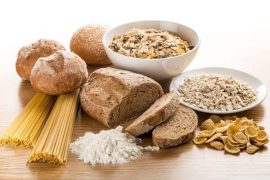Зміст
Herbs, an integral part of traditional medicine, are a wealth of active ingredients that can support the body in the fight against many diseases. At the same time, one of the diseases that challenge many people, especially in the elderly, is osteoporosis.
Can herbs for osteoporosis be an effective way to support the body in its treatment? In the article below, we indicate all the most important information about the elimination of the consequences of this disease with the help of plants.
Herbs and osteoporosis – a description of the essence of the disease
Osteoporosis is a disease of the skeletal system characterized by a gradual loss of bone mass and deterioration of tissue microarchitectonics. This leads to increased bone fragility and an increased risk of fractures. This disease most often develops unnoticed for years, with no obvious symptoms until more serious fractures occur.
Risk factors for osteoporosis include: age, gender (presumably women are at higher risk), estrogen deficiency after menopause, malnutrition, low levels of physical activity, and genetic predisposition.
Osteoporosis – traditional herbs that support treatment
For centuries, traditional folk medicine has used the power of herbs to treat a variety of ailments, including bone problems. These opportunities are also used today to support a major treatment program.
Nettle, of course, is among the herbs worthy of attention. It is rich in silica and calcium, thanks to which it supports bone tissue regeneration. Its regular use can help slow down bone degeneration.
Equally valuable in the treatment of osteoporosis are herbs containing phytoestrogens, including alfalfa. It acts like natural estrogen, a key hormone for bone health in menopausal women.
Natural herbs, osteoporosis – poppy, red clover.
In the fight against osteoporosis, not only traditional, well-known in Ukraine herbs are important, but also those that come from remote parts of the world and are gaining more and more popularity among people looking for natural ways to maintain health. One such plant is the poppy root, which grows in the Andes.
Maca is valued for its adaptogenic properties, which help the body adapt to stress and exercise. It can also counteract the loss of bone density, which is a key aspect in the context of this disease. Maca, as one of the most significant herbs for osteoporosis, contains many nutrients, including calcium, which is essential for bone health.
When treating osteoporosis with herbs, it is also worth introducing red clover into the diet. Its unique properties are due to the presence of isoflavones, which act similarly to estrogen. Thus, the effect of red clover on the body is similar to the benefits associated with eating alfalfa.
Treatment of osteoporosis with herbs as a support for pharmacology
Treatment of osteoporosis is a complex process. Therefore, a combination of different methods is often required to effectively prevent disease progression and support the body in regenerating lost bone density. Traditional pharmacology offers many drugs aimed at combating this disease, the effectiveness of which has been confirmed by numerous clinical trials.
Herbs for osteoporosis can be a great addition to medical treatment. However, it is worth emphasizing that they should not replace traditional treatment without consulting the attending physician.
Osteoporosis – herbs and the body’s need for magnesium
Magnesium is one of the key minerals when it comes to maintaining proper bone health. Its role in the human body is extremely important, since it is involved in more than 300 enzymatic processes, supports muscle function, affects the proper functioning of the nervous system and, above all, is an important element for building and regenerating bones.
As for the problem of osteoporosis, low magnesium levels can contribute to a decrease in bone density and increase the risk of fractures. Therefore, in a diet that supports bone health, one should not forget about providing the body with the right amount of this element. Unfortunately, many people’s diets today may be deficient in this valuable ingredient. That is why it is so significant to enrich it with sources of magnesium – both plant-based and chemical preparations.
Nettle and lemon balm are real treasures of magnesium. Consuming them regularly can help meet your daily requirement for this macronutrient and thus improve bone health.
It is also extremely significant to introduce herbs into your diet that support magnesium absorption from the digestive tract, such as chamomile or mint.








